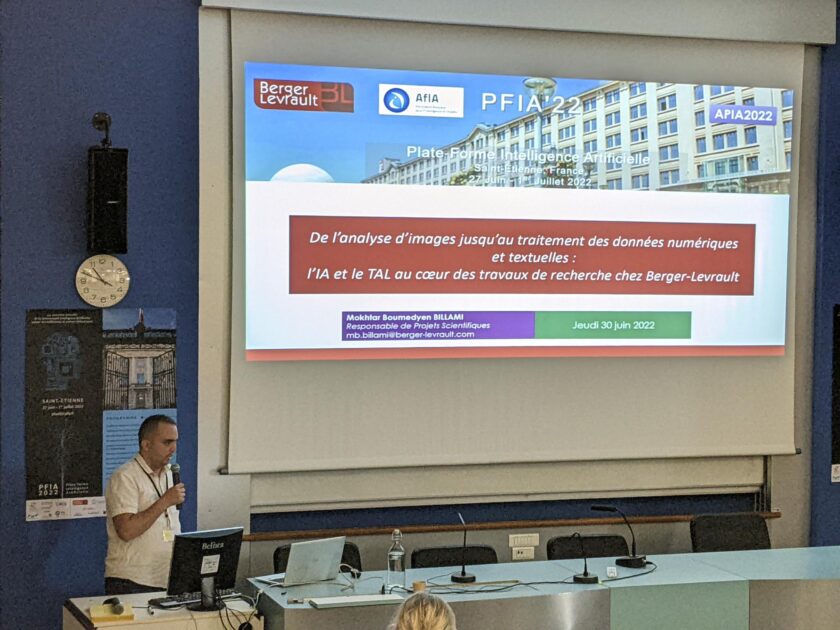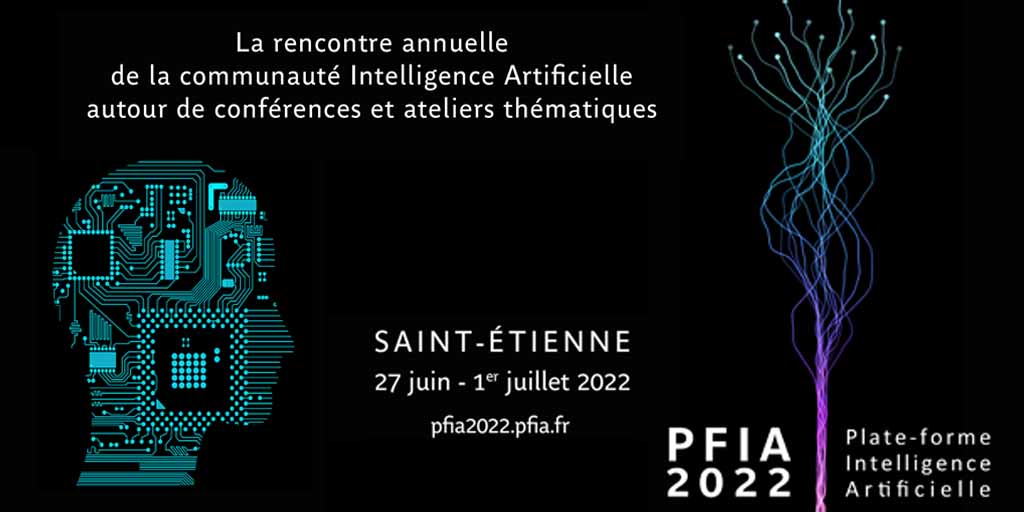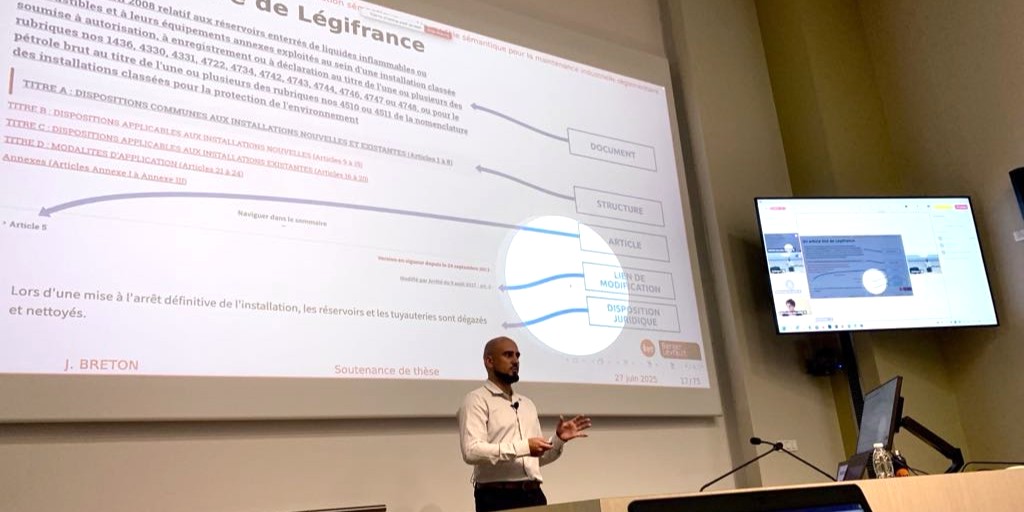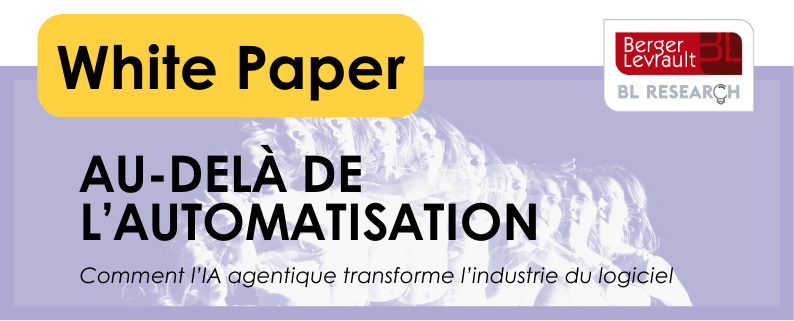PFIA (Plate-Forme Intelligence Artificielle) was held in Saint-Etienne (France) from the 27th of June to the 1st of July. This event is about AI (Artificial Intelligence) and its uses in different domains. This year, Berger-Levrault was one of the main sponsors of the event, and six of our team members were presents to share their work in the differents conferences.
Elodie Toufaili, Ph.D. student who leads a thesis about predictive maintenance entitled: “Definition of a decision support platform for maintenance”, took part to the IoT (Internet of Things), AI day where she had the opportunity to publicly present her work for the first time. The presentations she attended to gave her new ideas and tracks to follow in her work.
Hamza Safri, Ph.D. student working on “Federated learning for predictive maintenance”, presented his work about the federated learning framework for IoT. The exchanges on his work were mainly about the lockers linked to IoT constraints.
Kevin Ducharlet, Ph.D. student who is in its third year thesis did a presentation about his state of the art: “Anomalies detection in a data flow”. During the RJCIA (Rencontres des Jeunes chercheurs en Intelligence Artificielle) conference, he described several kind of existing methods and opened new research tracks to follow .
Dr. Younes Zegaoui who works on “Urban objects detection in LiDAR points of clouds” presented its main thesis work contribution at the CNIA (Conférence Nationale en Intelligence Artificielle) conference. He also presented his work in collaboration with Dr. Mehdi Kandi about BL.IDP in the APIA (Applications Pratiques de l’Intelligence Artificielle) conference.
Dr. Mehdi Kandi presented the BL.IDP project and the methods used to automatically extract informations from unstructured administrative documents such as PDF or images. The presented methods are based on AI models (Faster RCNN and Triplet-loss) and Few-Shot learning approaches.
Finally, Dr. Mokhtar Boumedyen Billami presented our research advances about problematics linked to semantic information research (BL.DEESSE), to automatic controls of documents (BL.IDP), to management and ease of assistance (BL.Assistant) and to the creation of an intermediation platform between the city and its citizens (BL.Conecta) during the APIA conference.

In conclusion, PFIA 2022 was a great opportunity for our team members to share their work and receive feedback from other expert in their respective domain. Relevant questions have been asked about the presentations and to share the encountered problematics of our projects lead us to open new tracks to follow in our research. It was also a great occasion to learn about several AI topics, such as ethics, interpretability, explicability, etc.





